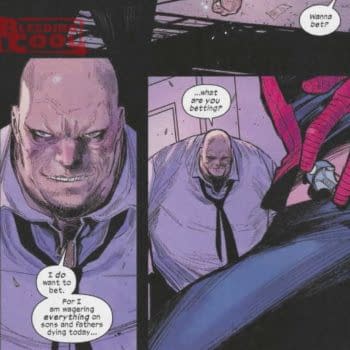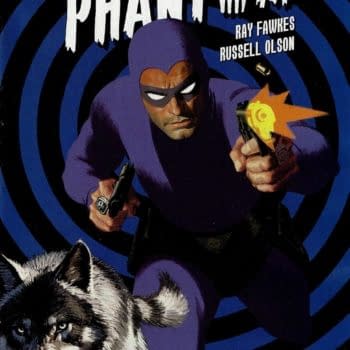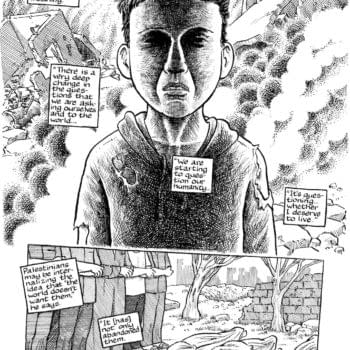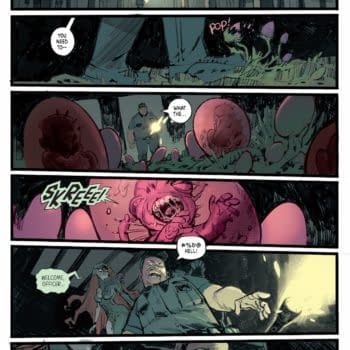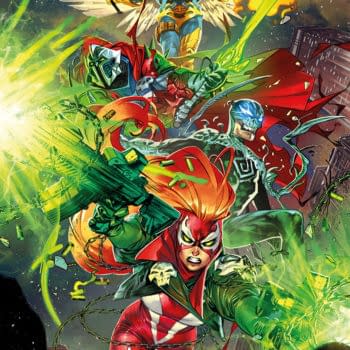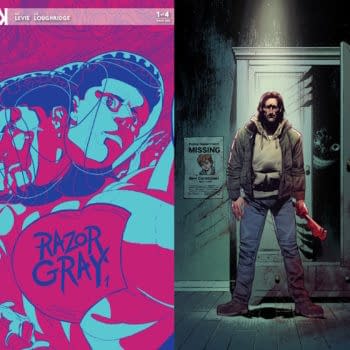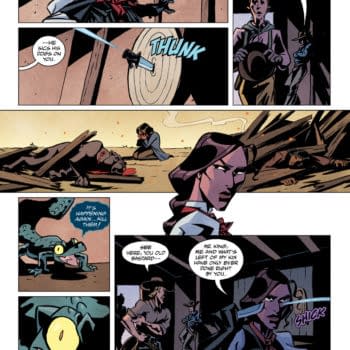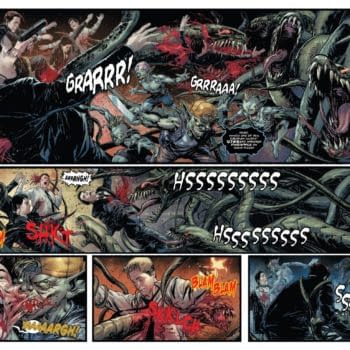Posted in: Avengers, Comics, Doctor Strange, Marvel Comics, Spider-Man, Stan Lee | Tagged: don heck, Don Rico, gene colan, jack kirby, larry lieber, marc toberoff, marvel, spider-man, stan lee, steve ditko, supreme court, work for hire
Stan Lee's Brother & Marvel Creator Estates File With Supreme Court
We have been looking at the attempts of the estate of Steve Ditko and other legendary comic book creators to appeal for Marvel to action the reversion to copyright rights to characters Spider-Man, Strange, and others. In response, Marvel Comics filed their own lawsuits to dismiss these claims, as referring to work-for-hire practices which would be ineligible for copyright reversion.
But while this has been happening, something else has been going on at the Supreme Court that may affect whether or not the creation of superheroes at Marvel in the sixties counts as work for hire or not.
And it's all around the board game, the Game Of Life, from 1960 which was created to celebrate the publisher's hundred years in business. Bill Markham created the game and the prototype, and recent attempts to get copyright returned to Markham's estate was refused by the court. It determined the creation of the game was work for hire, created at the request of the publisher, and at their expense, and so was owned by Hasbro. But the Supreme Court is being petitioned for review, seeking clarification for works made for hire before the 1976 Copyright Act, and still covered by the 1909 Copyright Act. And on that decision hangs many other such cases – including Marvel Comics' sixties characters and so much more.
It is noted that when Jack Kirby's estate petitioned the Supreme Court for copyright reversal, that it was then, and only then, that Disney paid out what is reported to be $30-$35 million to settle the case and not risk a precedent that could affect so many other creations.

And now Stan Lee's brother Larry Lieber and the estates of Steve Ditko, Gene Colan, Don Heck and Don Rico have filed an amicus brief in support of Markham with comic book lawyer supreme Marc Toberoff. The filing states;
It would be hard to find a better example of this than the amici who worked as freelancers from home, on their own steam, with no contract, no financial security, and no employment benefits, but without whom Marvel might not even be in business today. These prolific freelance writers and artists, who redefined the impecunious comic book business in the 1960's are literal poster-children for the termination right, exemplifying the very imbalance Congress sought to rectify. One need only look at the billion-dollar franchises these freelancers were instrumental in creating—Spider-Man, Thor, Iron Man, Dr. Strange, Falcon, Guardians of the Galaxy, Black Widow, Hawkeye, Blade—but have zero financial benefits from, to understand the importance of resolving the issues presented, justifying this Court's review. The pervasive use of the "instance and expense" test to eradicate the termination rights of such freelancers is not only unmoored from the 1909 Act, but it invites historical revisionism since the termination right does not vest until fifty-six years after publication. 17 U.S.C. § 304(c)(3). Corporate behemoths like Marvel, which were built on the success of such creations, but barely had one or two employees at the time it purchased such freelance material (for a pittance), now use their current stature to impose corporate authorship of "work for hire" under conditions that bore no resemblance to this, and an so-called "test" that enables them to do so. Inevitably, application of the malleable "instance and expense" test nearly always ends in a finding of "work for hire," with results that are often counterintuitive and unfair.
They are joined by William Morris Endeavor, the talent agency who also seek clarification over the law, citing the screenplay for Star Wars differing from Empire Strikes Back over the year it was created. As does the performing guild SAG-AFTRA, the guild for the industry's performers, also weighs in for Markham who see the current system as providing a windfall for corporations, who acquire perpetual ownership without having the responsibilities of employment. And also citing how 200 of the Rolling Stone's Top 500 songs of all time were created before the 1976 cut off – and 300 after.
The justices of the Supreme Court are scheduled to discuss whether to take up the Game of Life case on the 7th of January 2022. We will keep an ear out.






